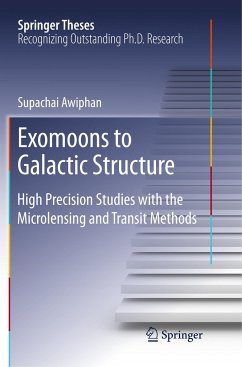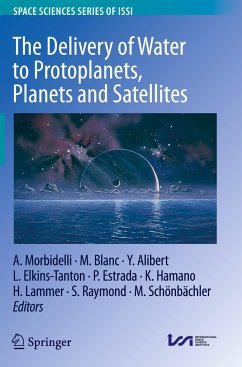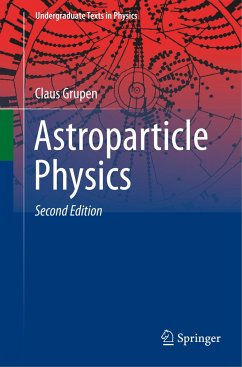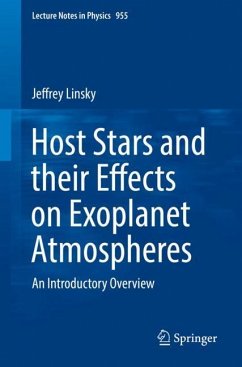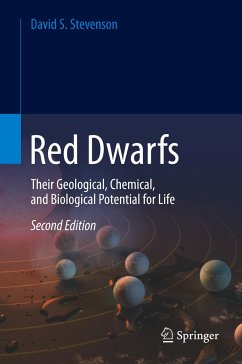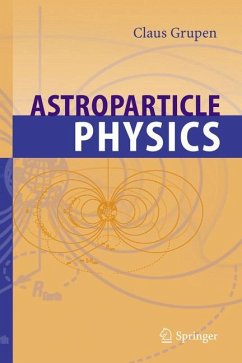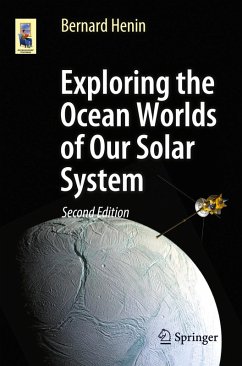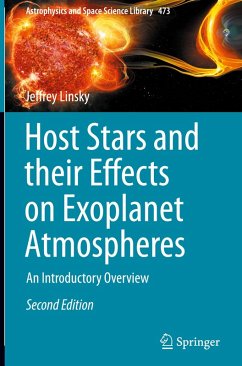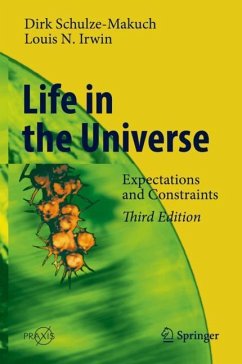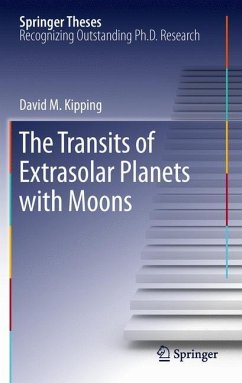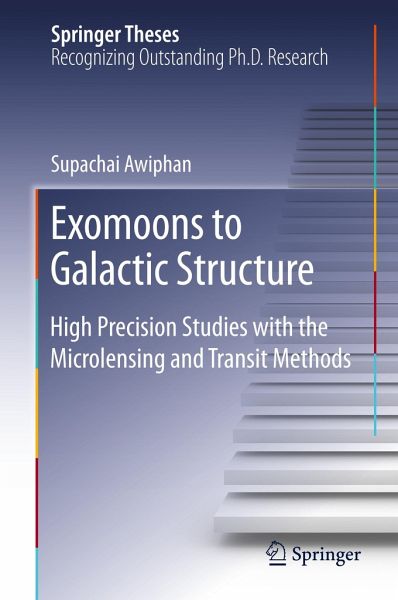
Exomoons to Galactic Structure
High Precision Studies with the Microlensing and Transit Methods
Versandkostenfrei!
Versandfertig in 6-10 Tagen
76,99 €
inkl. MwSt.
Weitere Ausgaben:

PAYBACK Punkte
38 °P sammeln!
This book presents three major studies covering exomoon and exoplanet detection and characterisation. Firstly, it reports the observations and analysis of the atmosphere of the hot Neptune GJ3470b, one of the lowest-mass planets with a measured atmosphere, using transmission spectroscopy techniques. The result provided improved measurements of Rayleigh scattering in the atmosphere and the first limits on additional planetary companions in the system. The second part discusses modeling a Kepler-like satellite's ability of a to detect exomoons by looking for transit timing variations and transit...
This book presents three major studies covering exomoon and exoplanet detection and characterisation. Firstly, it reports the observations and analysis of the atmosphere of the hot Neptune GJ3470b, one of the lowest-mass planets with a measured atmosphere, using transmission spectroscopy techniques. The result provided improved measurements of Rayleigh scattering in the atmosphere and the first limits on additional planetary companions in the system. The second part discusses modeling a Kepler-like satellite's ability of a to detect exomoons by looking for transit timing variations and transit duration variations, demonstrating how exomoons can unambiguously be identified from such data.Lastly, the book examines the development of a state-of-the-art Galactic microlensing simulator, which has been made publicly available. It was used to compare with the largest published sample of microlensing events from the MOA-II survey.





